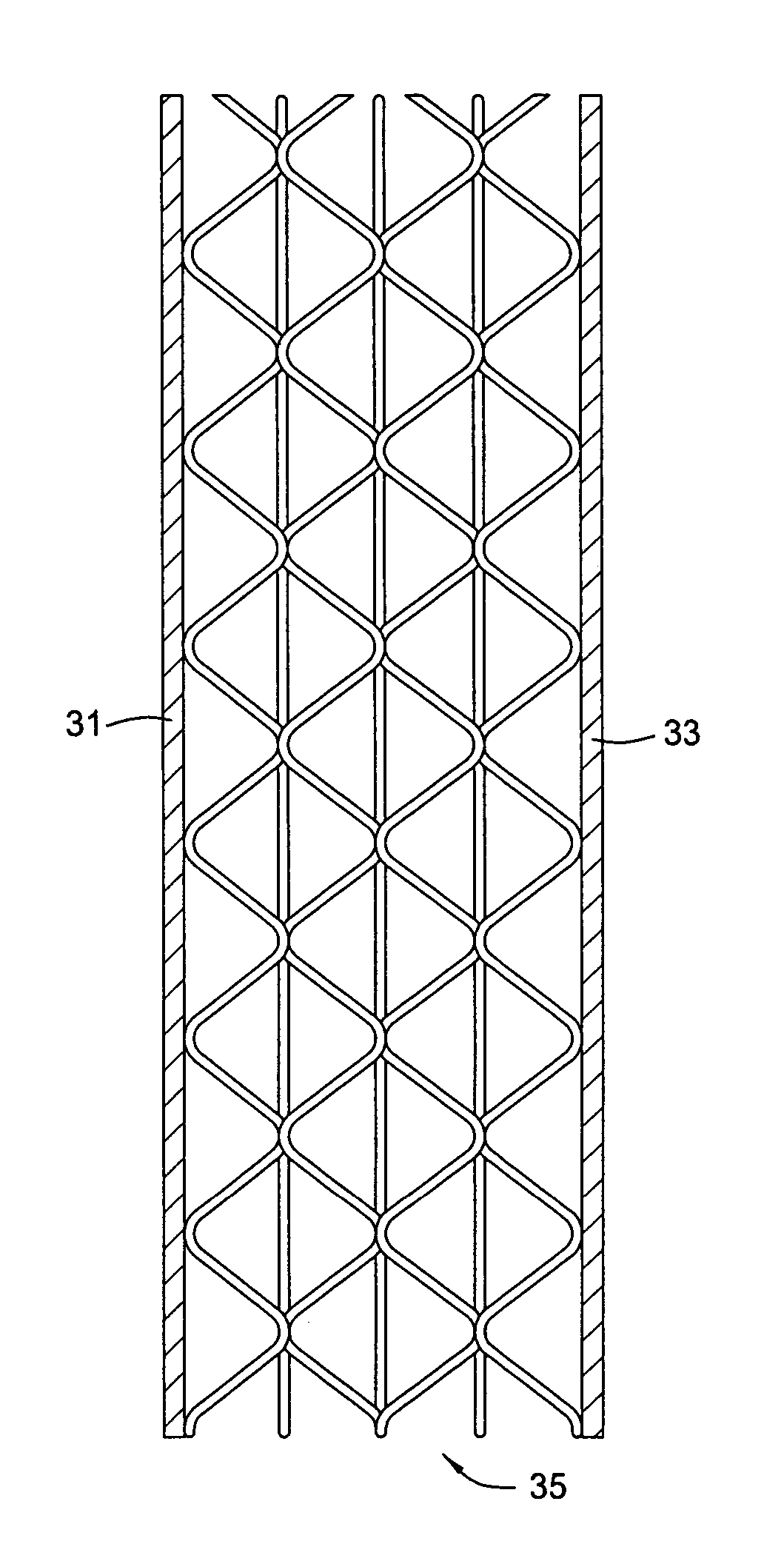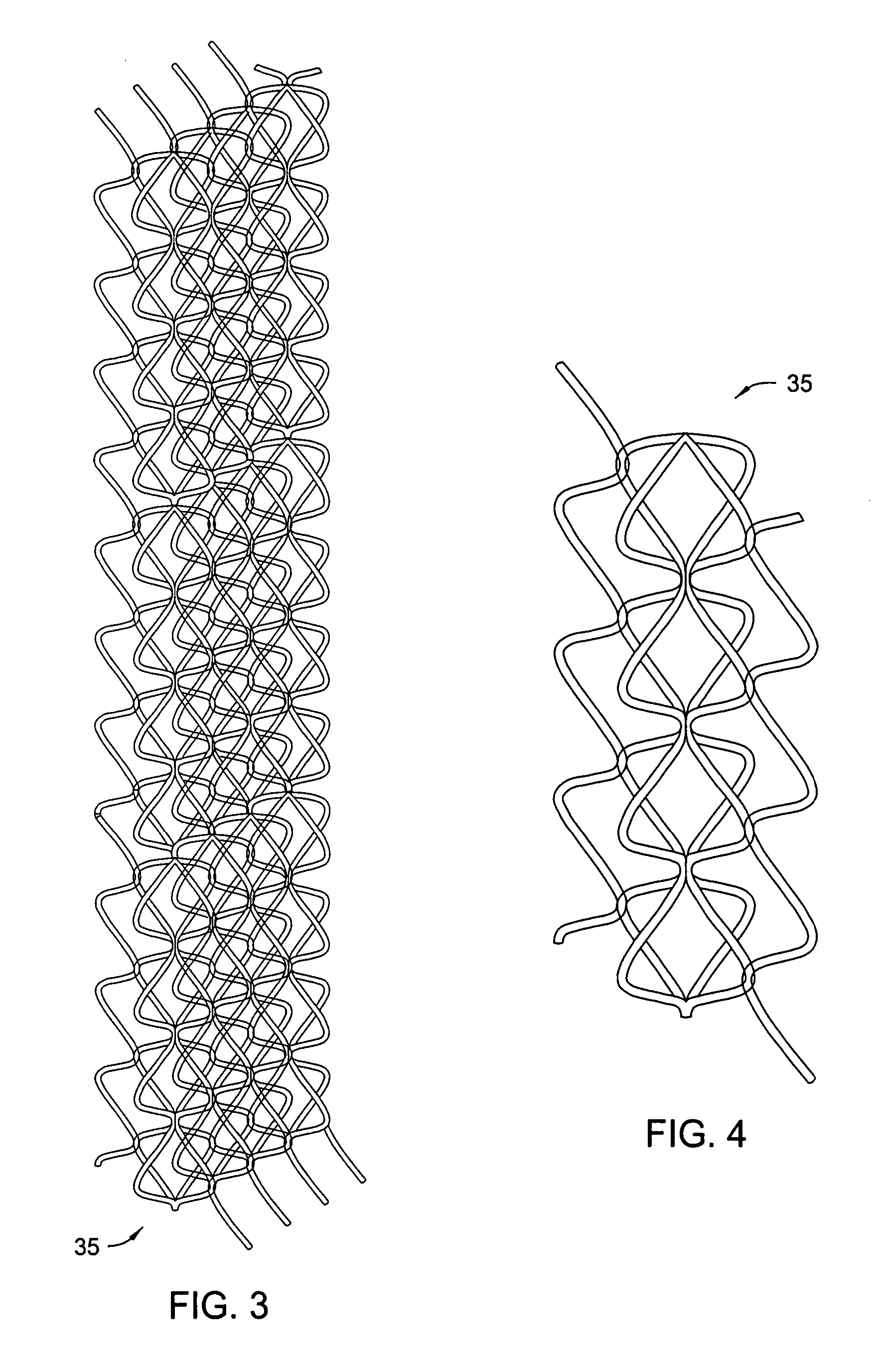System, method, apparatus, and applications for open cell woven structural supports
a technology of open-cell woven and structural supports, applied in the field of open-cell composite structures, can solve the problems of complex design and manufacture complicated design of ribs and spar wings, etc., and achieve the effect of superior stiffness and strength and reducing the number of fabrication steps
- Summary
- Abstract
- Description
- Claims
- Application Information
AI Technical Summary
Benefits of technology
Problems solved by technology
Method used
Image
Examples
Embodiment Construction
[0020]Referring to FIGS. 3-7, one embodiment of a system, method, apparatus, and application for the present invention is shown. The present invention is well suited for forming a wet wing for an aircraft. In one embodiment, the wing comprises an upper skin 31 (FIG. 6), a lower skin 33, and a structure 35 extending between the upper and lower skins 31, 33. The upper skin 31, lower skin 33, and structure 35 are sealed together to form a wet wing configuration for containing aircraft fuel. The structure 35 is an open cell, woven composite truss having a three-dimensional, interlocking geometry formed from fiber tow impregnated with a cured resin.
[0021]The fiber tow may be formed from carbon, glass, ceramic, metal, polymer, synthetic, natural, acrylic, polyester, polyethylene, aramid, nylon, polyacrylonitrile, pitch, carbon, and graphite. The fiber tow may be sized in a range of 1,000 to 48,000 monofilaments.
[0022]The structure 35 may be characterized by a number of different parameter...
PUM
| Property | Measurement | Unit |
|---|---|---|
| shape | aaaaa | aaaaa |
| diameter | aaaaa | aaaaa |
| cell size | aaaaa | aaaaa |
Abstract
Description
Claims
Application Information
 Login to View More
Login to View More - R&D
- Intellectual Property
- Life Sciences
- Materials
- Tech Scout
- Unparalleled Data Quality
- Higher Quality Content
- 60% Fewer Hallucinations
Browse by: Latest US Patents, China's latest patents, Technical Efficacy Thesaurus, Application Domain, Technology Topic, Popular Technical Reports.
© 2025 PatSnap. All rights reserved.Legal|Privacy policy|Modern Slavery Act Transparency Statement|Sitemap|About US| Contact US: help@patsnap.com



